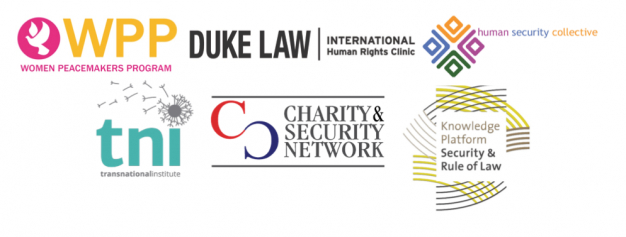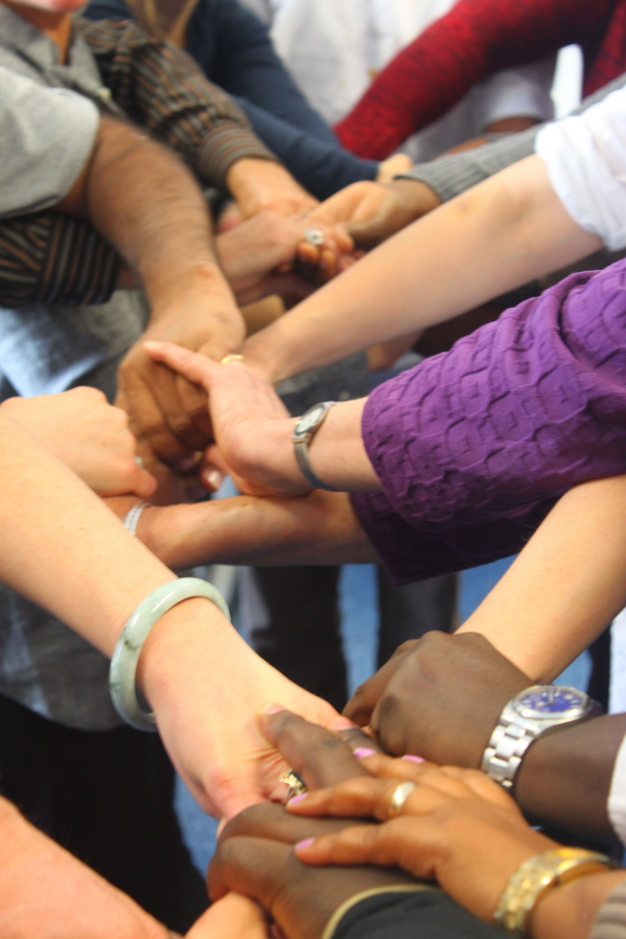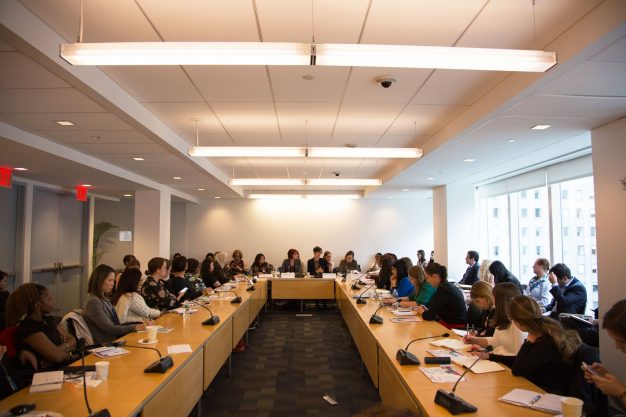CSW 58 Panel Discussion highlighting challenges and opportunities at play when working with religious leaders for the advancement of the gender equality agenda.
View PDF version of press release here
NEW YORK, USA – On Tuesday March 11th, the Women Peacemakers Program (WPP), Cordaid, the City College of New York, ABAAD – Resource Center for Gender Equality, and the Ecumenical Women’s Initiative (EWI) organized a panel discussion on involving religious leaders in women’s rights work. Minister of Foreign Trade and Development Cooperation of the Netherlands, Lilianne Ploumen, gave the opening speech of the event, which was hosted by the Permanent Mission of the Netherlands to the UN in New York.
Recent years have shown that the rise of religious fundamentalisms poses a major challenge for advancing gender equality targets of the Millennium Development Goals. However, while taking this reality into account, WPP’s work with women activists on the ground revealed that at times religion and religious leaders have been powerful allies in terms of promoting women’s participation in (post-conflict) community processes and advancing women’s rights.
To analyze the challenges and opportunities that exist in terms of involving religious leaders for the gender equality agenda, WPP moderated a dynamic discussion, during which its partners highlighted several examples, from UN to grassroots level of challenges posed by religion, while simultaneously sharing the innovative strategies they have developed to address these.
In her opening speech, the Minister of Foreign Trade and Development Cooperation of the Netherlands, Lilianne Ploumen, noted that religion and spirituality are for many people a source of inspiration and personal strength, also within the field of women’s rights. Religious leaders can be an important partner within the struggle for gender equality. Only by entering into a dialogue with religious leaders mutual overlapping positions can be found, though there must also be room to discuss issues of disagreement.
Representatives of the City College of New York, ABAAD, EWI and Cordaid started the discussion by informing the audience of global and local trends in terms of religious fundamentalisms. Next, they elaborated how religion can also play a role in promoting peace and women’s rights; thereby referring to successful strategies they have used in their work for gender equality. Several of the speakers underlined the need of strengthening the women’s rights constituency by reaching out to progressive voices inside religious circles, including progressive religious leaders; women theologians, and faith-based women activists.
“The reality is that religion matters to a lot of people; it continues to be a defining characteristic in the political and cultural norms that shape our societies. We cannot talk about changing power relations and social inclusion without accounting for the role of religion, religious institutions and religious leaders. We cannot act as strategic or effective agents of change for gender equality without engaging religion.” – Akinyi Walender, Director Women's Leadership for Peace and Security Programme, Cordaid
“The hierarchy of religious institutions are often reluctant to engage with women-led civil society initiatives for peace, sometimes creating obstacles particularly in religiously diverse communities. However local clergy on the ground are at times some of the most open for dialogue as they share the reality of their communities.” – Carolyn Boyd Tomasović, Managing Director Ecumenical Women’s Initiative
The event concluded with a list of recommendations formulated by the panelists, including:
1. Support and involve progressive religious voices for the women’s rights agenda.
2. Invest in building bridges between secular women’s movements and progressive faith-based women’s movements to strengthen the women’s rights constituency.
3. Create and enabling and safe environment for progressive religious voices, including women theologians.
[END]
Read the Policy Brief Gender, Religion & Peace for all recommendations.
The list of speakers:
Contact for more information:
Sophie Schellens: sophie@womenpeacemakersprogram.org
About the organizers:
The Women Peacemakers Program (WPP) has been established in 1997 to support and empower women peace activists. WPP actively advocates for the recognition of women’s experiences and peacebuilding contributions during war and conflict and the integration of a gender perspective in peacebuilding processes. The Women Peacemakers Program’s vision is of a world where women and men work together as allies to build communities where people co-exist peacefully through active nonviolence. Its mission is to support the empowerment of gender-sensitive women and men for the transformation of conflict through active nonviolence.
www.womenpeacemakersprogram.org
The City College of New York is a public university of 13,000 students and is the second most ethnically diverse university in the United States. Patricia Ackerman is the Director of the Women and Gender Studies Program at the City College of New York. Patricia is also an Episcopal Priest, active in interfaith and human rights organizations in NYC and internationally, such as IGLHRC (International Gay and Lesbian Human Rights Commission); CONNECT NYC, an organization focused on addressing and preventing intimate partner violence; and WPP where she was the co-trainer and curriculum developer during the 2009-2010 masculinities pilot Training of Trainers. Patricia also participated in the WPP’s 2010 and 2013 Consultation meetings on Gender, Religion, and Peace.
www.ccny.cuny.edu
The Ecumenical Women’s Initiative (EWI) is a Croatian-based regional women’s fund that was established in 2007 supporting and facilitating women-led initiatives in Bosnia & Herzegovina, Croatia, Kosovo, Macedonia, Montenegro and Serbia. EWI works with women change-makers in faith communities and in wider society by supporting and connecting women’s groups and women theologians working on women’s rights, peacebuilding and reconciliation, and belief-based ecumenical and inter-religious dialogue & cooperation. EWI’s support of regional networking and cross-border communication among women activists further promotes, enhances and strengthens the impact of women’s participation in building trust and cooperation in the region’s divided post-war communities. A key element of EWI’s approach is to encourage women to publically voice their ideas on religion and faith, peace and security through a women’s lens and within their specific multi-cultural context thus affirming and placing their grassroots activism within the context of movement building.
www.eiz.hr
ABAAD – Resource Center for Gender Equality is a non-profit, non-politically affiliated, non-religious civil association founded in June 2011 with the aim of promoting sustainable social and economic development in the MENA region through equality, protection and empowerment of marginalized groups, especially women. Based in Lebanon, ABAAD believes that achieving gender equality requires systemic changes in policy and modes of social interactions at all levels of the society: home, work place, school, public services, media, and so on. Hence, ABAAD seeks to promote women’s equality and participation through policy development, legal reform, gender mainstreaming, engaging men, eliminating discrimination, and advancing and empowering women to participate effectively and fully in their communities. ABAAD also seeks to support and collaborate with civil society organizations that are involved in gender equality programs and advocacy campaigns.
www.abaadmena.org
Cordaid is one of the largest development organizations in the Netherlands and has a network of 634 partner organizations in more than thirty countries in Africa, Asia, the Middle East and Latin America. We support people in vulnerable regions and areas of conflict to build flourishing communities. Women are crucial contributors to their societies. They are the ones who cross ethnic and religious borders and who see to the healthy development of their children. They are the ones to advocate for education, employment and new opportunities for young people. Peace can only last when women are also involved. Cordaid supports the process of uniting local women and provides them with national and international stages - from Afghanistan to Colombia, Sudan to Sri Lanka - to consolidate their positions. Together they define their roles as well as strengthen their positions.
www.cordaid.org
12 Dec '17 Today, we are pleased to share with you the Conference Report “Financial Inclusion for Freedom and Security” by the Women Peacemakers Program, Duke Law International Human Rights Clinic, Human Security Collective, Transnational Institute, the Charity & Security Network, in cooperation with the Knowledge Platform Security and Rule of Law.

7 Dec '17 Today, on the 13th day of the 16 Days of Activism Against Gender Violence Campaign, we bring you the sad news that from 15 December onwards, the Women Peacemakers Program (WPP) will have to close its doors. We would like to ask for your time to read what has driven us to make this decision.

7 Nov '17 On Thursday, 26 October 2017, a side event entitled, “Pulling the Rug from Under Our Feet: What is the UNSCR 1325 Without Civil Society Freedoms?” was hosted on the margins of the 17th anniversary of United Nations Security Council Resolution (UNSCR) 1325. The event was hosted by the Women Peacemakers Program (WPP) and the Dutch Mission, in collaboration with Duke Law’s International Human Rights Clinic, Al-Hayat Center for Civil Society Development, Arab Women Organisation of Jordan, NOVACT, Free Sight Association, Iraqi Al-Amal Association, Women Empowerment Organisation, NGO Working Group on Women, Peace and Security and Women’s International League for Peace and Freedom. This article briefly looks at the main issues discussed during the event.
